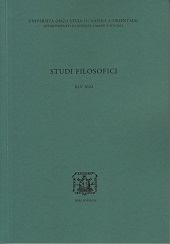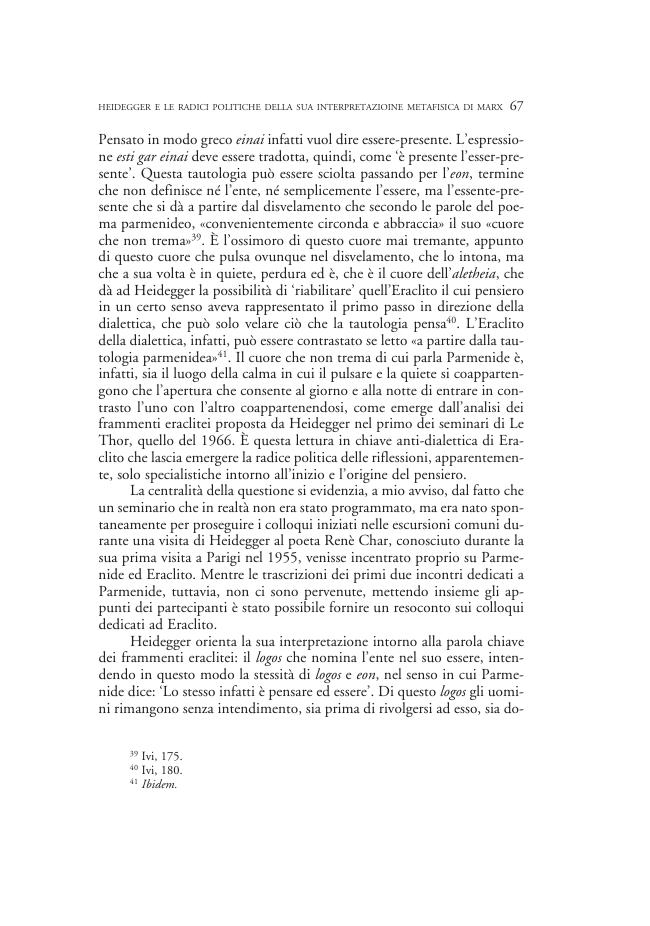Heidegger e le radici politiche della sua interpretazione metafisica di Marx
P. 59-73
Between the late 1960s and early 1970s, Heidegger resumed the dialogue he had started with Jean-Paul Sartre immediately after the war on themeaning of Humanism, the essence of action, and the interpretation of Marxism, trying to provide a metaphysical interpretation of Marx's youthful statement “to be radical means to grasp things at their root, but the root for man isman himself”. In this French cycle, the philosopher takes the identification ofmaterialism and technology to its extreme consequences, rejecting politics as anactivity aimed at producing effects. On the contrary, he sees the possibility ofbreaking the constraints of the contemporary world by returning to the originsof thought and in particular to Heraclitus, read in an anti-dialectical key. It isfrom this horizon that it is possible to understand his revolutionary interpretation of revolution as “the turning back of the essence to the principle”. [Publisher's text]
-
Articoli dello stesso fascicolo (disponibili singolarmente)
-
Informazioni
Codice DOI: 10.1400/291515
ISSN: 2038-6613



